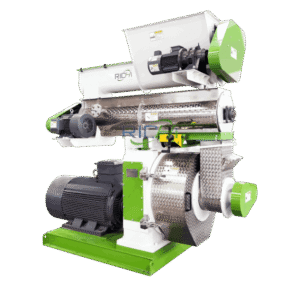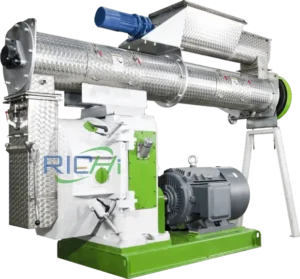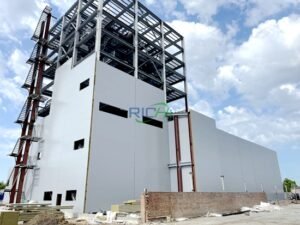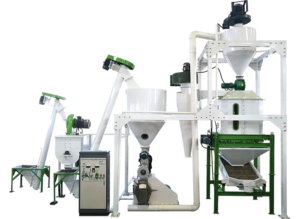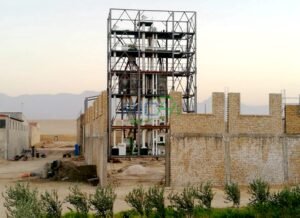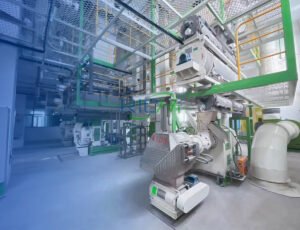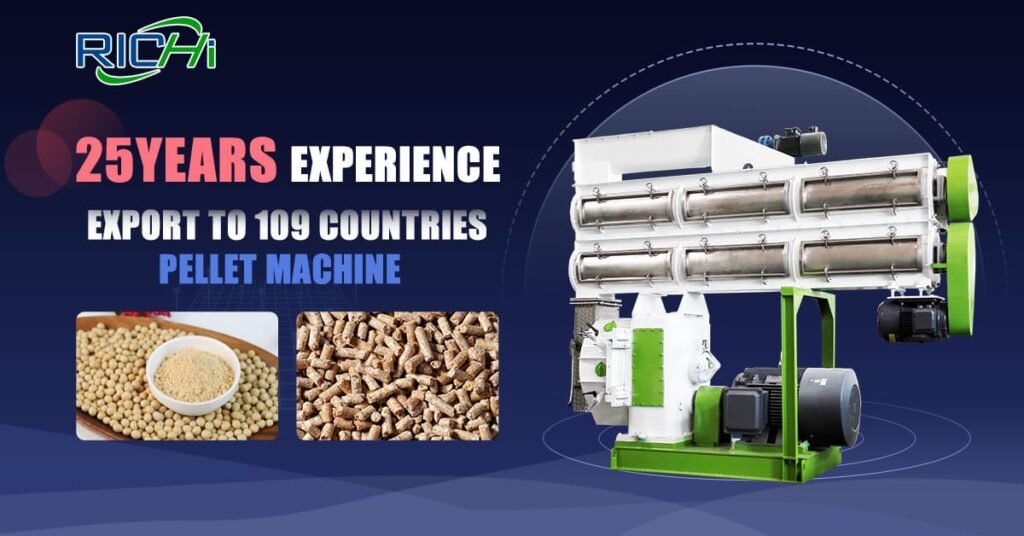
In the dynamic and ever-growing animal farming industry, ensuring a consistent supply of high-quality and nutritionally balanced feed is paramount for maintaining the health, growth, and productivity of livestock and poultry. As operations scale up to meet the increasing demand for animal-based products, the need for efficient and cost-effective feed production solutions becomes increasingly crucial. Enter the 8-10t/h animal feed pellet mill, a powerful and versatile machine designed to streamline the production of animal feed pellets on a large scale.
These high-capacity pellet mills offer a comprehensive solution for commercial animal farming operations, feed mills, and integrated livestock production facilities, enabling them to meet the growing demand for animal feed while ensuring consistent quality and sustainability. In this article, we’ll explore the world of 8-10t/h animal feed pellet mill for sale, highlighting their significance, key features, and factors to consider when making an investment in these essential machines.
The Significance of High-Capacity Animal Feed Pellet Mills
Large-scale animal farming operations and feed mills require robust and efficient equipment to meet their substantial feed production needs. The 8-10t/h animal feed pellet mill is designed to address this demand, offering numerous benefits:
- High Production Capacity: With an output capacity ranging from 8 to 10 tons per hour, these pellet mills can produce vast quantities of animal feed pellets, ensuring a consistent supply for large-scale operations.
- Consistent Product Quality: Advanced technologies and quality control measures ensure the production of feed pellets with consistent nutrient profiles, promoting optimal animal health and performance.
- Efficient Production: Leveraging automation and process optimization, these pellet mills maximize output while minimizing waste, contributing to cost-effectiveness and sustainability.
- Customized Formulations: The ability to manufacture feed formulations tailored to the specific nutritional needs of different animal species, life stages, and production systems optimizes growth, reproduction, and overall productivity.
- Scalability: As operations expand, the high capacity of these pellet mills allows for seamless scaling of feed production, ensuring a reliable supply to meet growing demands.
Related post: https://www.richipelletmachine.com/animal-feed-pellet-making-machine-for-sale/
Key Features of 8-10t/h Animal Feed Pellet Mills
When exploring 8-10t/h animal feed pellet mills for sale, it’s essential to understand the key features that contribute to their performance and efficiency:
- Robust Construction: These pellet mills are built with durable materials and sturdy components, designed to withstand the rigors of continuous, high-volume production.
- Advanced Pelleting Technology: Incorporating state-of-the-art pelleting technologies, such as ring dies, flat dies, or extruders, these machines ensure consistent pellet quality and optimal nutrient retention.
- Automation and Control Systems: Sophisticated automation and control systems enable precise monitoring and adjustment of process parameters, ensuring consistent product quality and maximizing efficiency.
- Energy Efficiency: Incorporating energy-efficient technologies and design features, these pellet mills contribute to reduced operational costs and environmental responsibility.
- Modular Design: Many 8-10t/h animal feed pellet mills feature modular designs, allowing for easy integration with existing production lines, as well as future expansion and upgrades.
- Auxiliary Systems: These pellet mills often include auxiliary systems, such as material handling equipment, dust collection systems, and cooling and drying units, for a seamless and efficient production process.
Factors to Consider When Purchasing 8-10t/h Animal Feed Pellet Mills
Investing in an 8-10t/h animal feed pellet mill is a significant decision that requires careful consideration of various factors to ensure a successful and profitable operation:
- Production Requirements: Evaluate your current and projected production needs, taking into account the scale of your operation, the number of animals to be fed, and potential future growth.
- Feedstock Compatibility: Assess the compatibility of the pellet mill with the specific feedstocks and ingredients used in your feed formulations, considering factors such as moisture content, particle size, and density.
- Pellet Quality and Specifications: Determine the desired pellet quality and specifications, including size, density, durability, and nutrient profile, to meet the specific requirements of your target animal species and production stages.
- Energy Efficiency and Sustainability: Prioritize energy-efficient and sustainable pellet mills that align with your organization’s environmental goals and contribute to long-term cost savings.
- Automation and Control Systems: Evaluate the level of automation and control systems offered by the pellet mill, as advanced features can improve process efficiency, consistency, and quality control.
- Maintenance and Support: Consider the manufacturer’s reputation for quality, after-sales support, and availability of spare parts and technical assistance, ensuring the longevity and optimal performance of the pellet mill.
- Budget and Financing Options: Determine your budget for the 8-10t/h animal feed pellet mill and explore potential financing options, such as leasing or loans, to spread the investment over a longer period.
- Integration with Existing Systems: If applicable, assess the compatibility and integration of the pellet mill with your existing feed production systems, ensuring seamless operations and minimizing disruptions.
By carefully evaluating these factors and selecting the appropriate 8-10t/h animal feed pellet mill, large-scale animal farming operations and feed mills can ensure efficient and sustainable feed production, contributing to the overall health, growth, and productivity of their animals while supporting the long-term viability of their operations.

